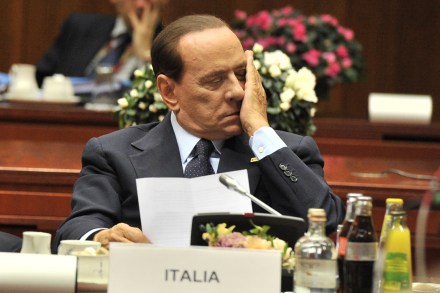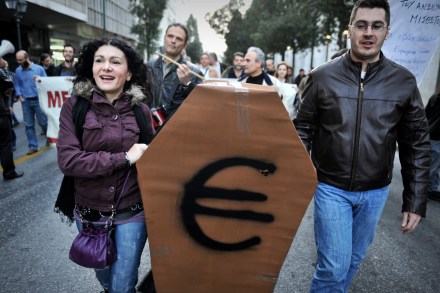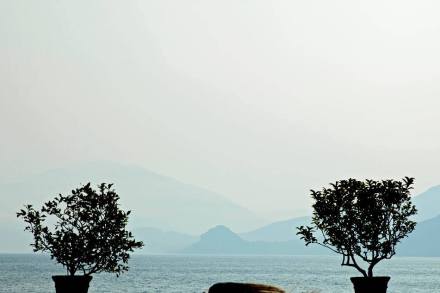Crisis a la Milanese
If Italy’s a country on the brink, it doesn’t show it. At least not in Milan. Along the city’s rainswept streets, thousand of designer-clad people hit the shops this weekend, unperturbed at the prospect of the government’s likely collapse and the risk of a financial meltdown. At a small deli called Pack overpriced but delicious pieces of Bresaola and Parmegiano are sold in green-and-gold Harrods-like wrapping. La Rinascente, the city’s upmarket department store, is packed with high-rolling shoppers and the nightclub under the main Armani store is heaving with models and their male accoutrements. Here life remains dolce. Of course Milan is not Italy – it is the country’s commercial















